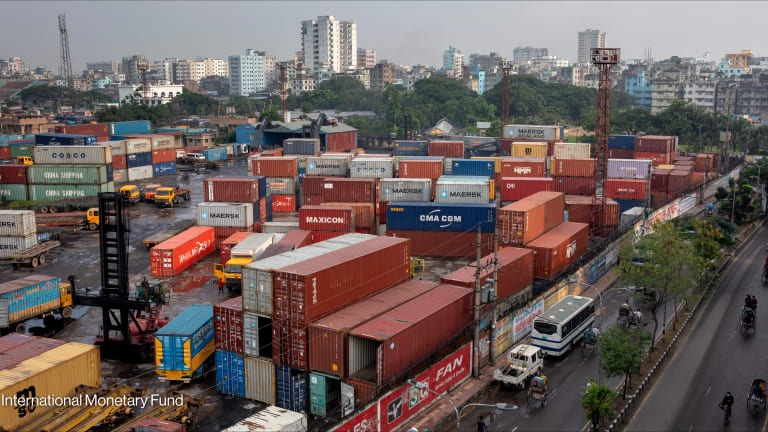
Last month, the United Nations created a venue for interested groups and individuals to share lessons and ideas to implement the post-2015 development agenda both at a national and global level. This came after two years of regional and national consultations that took into account suggestions from stakeholders such as the private sector, academe and various civil society organizations, including women’s and minority groups.
In this spirit, Devex asked five of The Asia Foundation’s inaugural batch of development fellows — young Asian professionals working in government, nonprofit organizations, social enterprises and media — to tell us what they think is the most pressing development challenge in their countries.
Drawing on their native country’s experience, here is what the inspirational young professionals have to say.
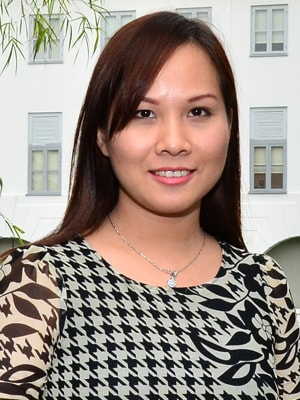
PRIORITIZE GREEN REFORMS
Eaimt Phoo Phoo Aung | Myanmar fellow
Like many other countries, Myanmar faces severe environmental challenges. The country’s ranking 167 out of 176 countries surveyed by the Global Adaptation Institute is as much a reflection of Myanmar’s exposure to climate change as it is of its low capacity to manage environment-related risks. Estimated to have increased by 13.5 percent since the close of the 1990s, Myanmar’s levels of deforestation are among the highest in the world. Also, foreign direct investment reliance on the mining, oil and gas extraction industry, as well as exports of nonrenewable resources — including gas and gems — are increasing.
Often quite poor, local communities are especially vulnerable and powerless in protecting themselves from environmental damage and climate change. Their basic rights are increasingly being threatened, excluded and divided by free riders and opportunistic groups. With the depletion of ecosystems being irreversible, states should take care not to prioritize economic wealth at the expense of the environment. The resulting social gaps and ecological scarcities will only foster and worsen socio-economic instability.
The state has a central role to play in making the transition toward a greener economy by its ability to reform legal frameworks and call for collective action from all actors — may they be public or private. As noted by the U.N. Environment Program, the transition toward a low-carbon, resource-efficient and socially inclusive economic system requires the implementation of a comprehensive set of enabling conditions. These consist of national regulations, policies, subsidies and incentives, international market and legal infrastructure, as well as trade and aid protocols. As a critical opportunity for nations to meet the well-being of their people while sustaining economic growth and ecosystems, the promotion of a green economy should be the focus of any country’s reform agenda — including Myanmar’s.
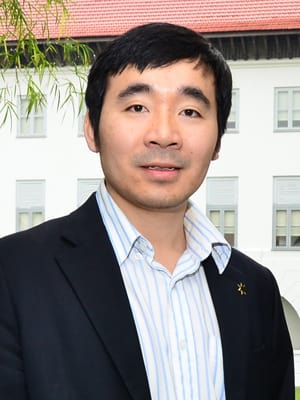
TACKLE EXTRACTIVE INSTITUTIONS
Thiem H. Bui | Vietnam fellow
Extractive and exclusive institutions are among the world’s most serious and pressing problems. Entrenched in many countries across Asia, these political and economic institutions create various obstacles to meaningful participation by the people in local, national and international decision-making and fail to provide governance system with openness, deliberative quality and integrated actions. Instead, they facilitate rent-seeking behaviors and undermine the effectiveness of governance across all sectors.
In Vietnam, existing institutions are denying many ordinary Vietnamese the chance to improve their lives, escape poverty and have more or less equal opportunities in employment, education and health care. Particularly, state-owned enterprises are intrinsically inefficient, yet they are rewarded with a leading role in the entire economy through strategic market access, cheap capital and protectionist policies that crowd out job-creating firms in the private sector. Their managers are also systemically corrupt, siphoning off a large share of that cheap capital for private gain.
State-owned enterprises have become an enormous drag on Vietnam's development. It is imperative to embark on radical reforms of these extractive institutions if our efforts to tackle ongoing development challenges — including rampant corruption, environmental degradation and endemic poverty — are to be successful.
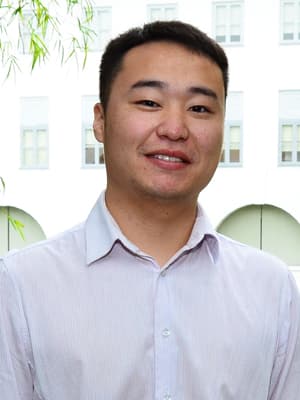
PROVIDE BALANCED EDUCATION
Badruun Gardi | Mongolia fellow
Most countries have recently started to focus on the strengthening of science, technology, engineering and math education in schools. While this is obviously a positive development, what is usually left out of the conversation is the need to have a proper balance in providing strong STEM education, and teaching “softer” critical and analytical thinking skills.
In a democracy like Mongolia, it is not enough for citizens to just come out to vote every few years. We need active citizens that are able to digest and analyze information from a multitude of sources, keep decision-makers accountable for their actions, and vote out nonperformers and those hurting the national interest. Otherwise, democratic elections end up backfiring by putting into power the most populist politicians all the while legitimizing their ascent to power.
We must ensure that the push for higher-quality STEM education does not discount the other half of the education spectrum, which values independent, analytical and critical thinking from an early age. Both go hand-in-hand to create a healthy, vibrant and functioning society that has the capacity to steer a country, and the region, toward prosperous development.
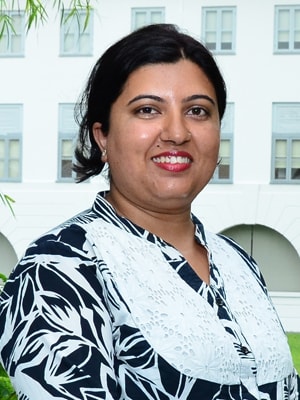
EMPOWER WOMEN THROUGH COMMUNITY MEDIA
Jaya Luintel | Nepal fellow | The Story Kitchen president and CEO
Experiencing gender equality in reality is the major development challenge that we ponder upon every day. In Nepal, more girls are now enrolled in primary schools but dropout rates increase as they climb to higher grades; advocacy on women's participation is massive but the number of women at decision-making levels is still minuscule; maternal mortality rates are dropping but many more still face challenges in accessing basic health care services; and the number of employed women is rising but very few have control over their earnings.
My recent conversations with more than 100 Nepalese women of different ages and places across the country has shown me that Nepali women are capable of speaking for themselves and are very well-informed. We succeeded in raising women’s awareness of their rights and taking action. But the other side of the coin is that we failed to engage men on gender equality at home, in the community and the nation we live in.
A woman will never experience true gender equality unless her voice is heard, existence accepted, work taken into account and contribution valued at the family, community and state levels. This is why applying a narrative or storytelling approach to amplify women's stories and voices is a compelling way to make the rest of society aware and responsive. The power, reach and influence of community media can help realize vision and create a space for women to experience equality in reality — in Nepal and elsewhere.
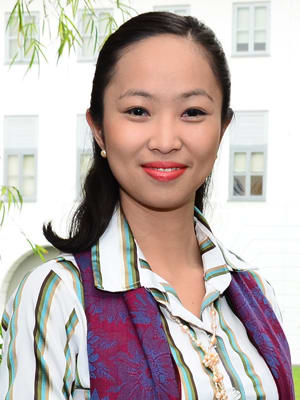
EXERCISE OPEN GOVERNANCE
Marcia Czarina Corazon Medina-Guce | Philippine fellow | Union of Local Authorities of the Philippines executive director
Open governance — which promotes transparency, accountability and evidence-based policymaking — is the next big thing in development. It entails that governments proactively make the supply of data and information readily accessible to the public, while the public check governance and provide policy inputs by exercising their right to information and processing the data.
As a founding member of the Open Government Partnership, the Philippines is moving toward full disclosure by national government agencies and local governments of their budgets and expenditures, engaging civil society in participatory planning and creating innovative systems for data to be transformed into programs responsive to public needs. This will lead to a radical change in the discourse of public governance.
The requirements to achieve open governance are threefold. First, there needs to be political will to shift leadership paradigms and become more inclusive in all systems and processes of governance. Secondly, governments have to innovatively structure themselves in a way that makes their openness relevant to the needs and contexts of its people. Finally, civil society has to be proactive in engaging government and willing to leverage its own resources and capitals to co-create the agenda and outcomes of development. Much work remains to be done. But the promise and outcomes of open governance are definitely worth the collaborative work.
The views and opinions expressed here are those of the individual authors and not necessarily those of The Asia Foundation.
Interested in development in the Asia-Pacific region? Join some of the biggest movers and shakers in the region at the first-ever Devex Partnerships & Career Forum in Manila. Here’s how you can participate.








